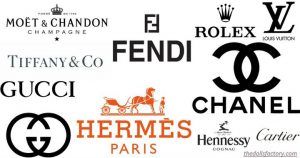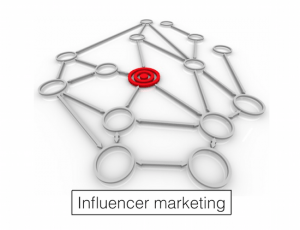A friend who was writing a dissertation asked me to respond to a few questions on digital marketing for luxury brands. Herewith are the questions and answers I gave.
Q: Is it vital for luxury brands to go beyond having a mere online presence (i.e. a Facebook page), and really make an investment in their digital strategy?
The answer to the question should not be unilateral. First, it depends on what the goals of the brand are. Digital channels and a digital strategy must be conceived in function of the brand’s objectives (and integrated with the offline). Secondly, the brand should consider where its targeted audience is. For example, a company selling super luxury yachts might not find as much need to develop a strong online presence. That said, the audience which the brand is looking to reach might be quite different and/or wider than the primary customer. For example, the brand may decide that the online messaging is geared for shareholders or aimed more at future recruits (employees). Accordingly, as far as investing in digital is concerned, it depends on what they are trying to achieve. And a Facebook page that serves no purpose is better left unopened (although, it’s probably a good idea to reserve the vanity name).
Q: What would you consider as the key success factors when using digital marketing for luxury brands?
This is a vast question. It depends on so many criteria: the state of digital maturity, type of sector, available talent, etc. The short answer is one of mindset. If the top executives have the right mindset, there is a far better chance of success in one's digital strategy. Share on X The management mindset qualities that I tend to look for are: willingness to experiment, stomach for failure, fluidity and openness of communication, speed of decision-making, to be in continuous learning mode and, importantly, willingness to test the tools oneself (i.e. key members of management are actually utilizing and experiencing the digital tools and platforms). Digital marketing cannot be an intellectual exercise, neatly read and understood via a TV talk show or delivered in a consultant’s deck. It must be experienced by the management.
Q: At one point, you describe consumers today as “skittish” and mistrustful. How can brands regain consumer’s trust and win back the brand loyalty that once existed?
First, the brand should be aware of the dearth of trust. An important area to uncover is WITHIN the company and its own employees. Are the employees the brand's #1 fans? Share on X Do the employees believe in what the company is touting? Secondly, as far as gaining confidence, there must be an alignment in the messages that are coming out of the company. Here, I would look at the coherence and congruency of messages between commercial messages (from sales & marketing), corporate messages (to shareholders) and employer branding (from HR). Finally, once the communications are aligned and congruent, trust will be built up through corresponding actions. In today’s overcrowded world, there is still a place for a mantra of Under-promise and Over-deliver. Nothing is stronger than surpassing expectations. For luxury brands, the opportunity to over-deliver is where supreme added value can come. When we talk about brand loyalty, there is essential work to be done in having a singular customer view. For big luxury brands, a single customer view worldwide is absolutely strategic. Share on X
Q: What are your thoughts on the role of bloggers?
Bloggers can be a great additional channel of communication. Of course, the more bloggers are treated as “paid media,” the more phoney the experience. If they are treated (as they ought to be) with arm’s length respect and their coverage is “earned,” the greater the chances are for more profound amplification. Bloggers should not and cannot be controlled; so they can also create a negative buzz. Big brands need to know how to interface/interact with bloggers in ways that are mindful of the individual behind the keyboard/camera. Bloggers are, more often than not, unfamiliar with or allergic to corporate methods.
Q: Some critics believe fashion bloggers are beginning to lose credibility (receiving “freebies” from certain brands in exchange for publicity). Do you see brands teaming up with bloggers as an effective tactic?
As with any new marketing tool, there is an inevitable gold rush that brings with it abuse and over-usage. Marketers have an almost incurable tendency to push the boundaries past dishonesty. Fortunately, some bloggers manage to retain a strong sense of independence. I feel that luxury brands need to invest — in time and resources — in building long-term relationships with the key influencers without looking for immediate returns. I would add that there are effective services/agencies that create a credible and authentic relationship between brands and bloggers. In the UK, I think of Handpicked Media.
Q: Any thoughts on digital marketing specifically to the “Millennials” (age 18-34) – a digitally savvy group, and the supposed next generation of luxury consumers?
I think of the millennials, first, as the next wave of employees. That said, they can even be the current generation of luxury consumers (i.e. Mark Z and a boatload of other successful young entrepreneurs). Millennials have three particularities that deserve mentioning:
- They tend to have a higher degree of bullshit detection, especially in the digital channels — thus, it is important for luxury brands to consider being more transparent (about sources, fabrication, policies, pricing, etc.);
- The millennials are in need of brands with a strong sense of values in order to create/consolidate their own identities;
- In terms of channels, formats and devices, the millennials are distinctly more mobile than the older generations.
They also have a tendency to prefer video. And, they are keen on superior user experience (UX). They have distinctly less patience and a keener sense of awareness of what is a good UX. Luxury brands need to realize that the UX benchmark may just as easily be Amazon, Apple and Starbucks (as opposed to other luxury peers). It is also worth considering that teenagers might also be influential members of today’s wealthier luxury consumers (as in: their kids).
Any comments and feedback welcome!














Trackbacks/Pingbacks